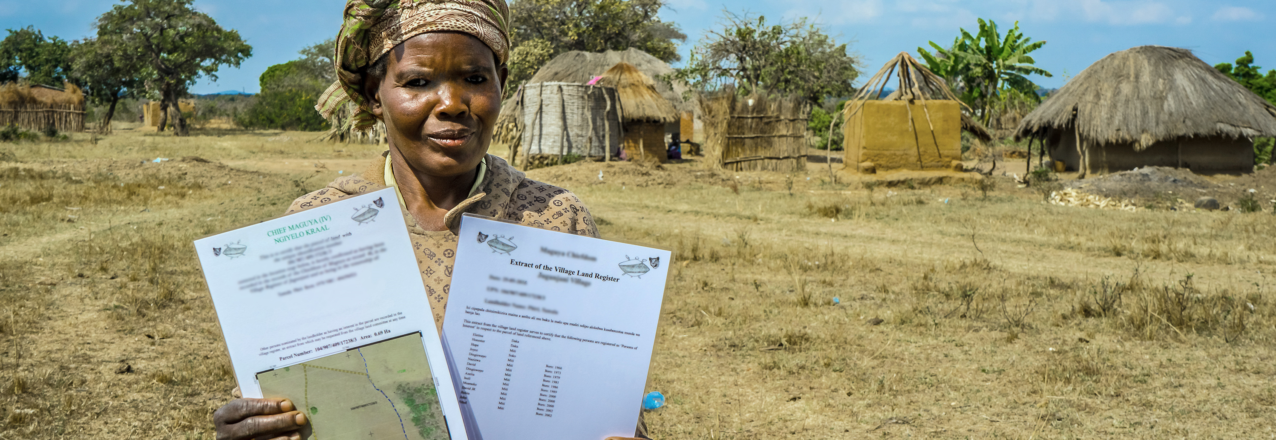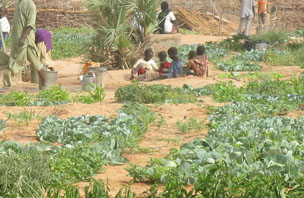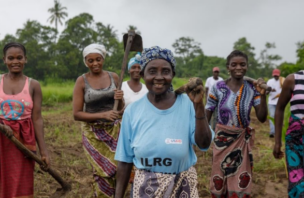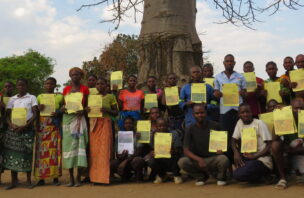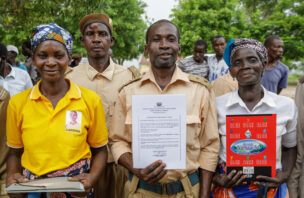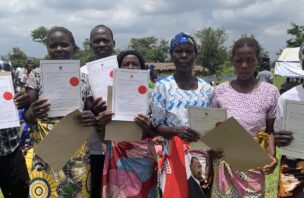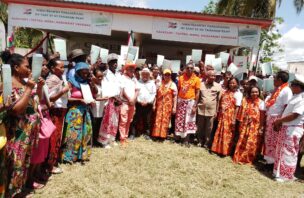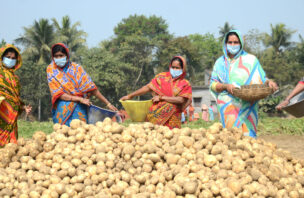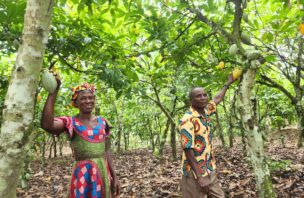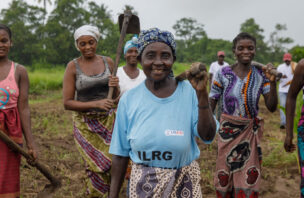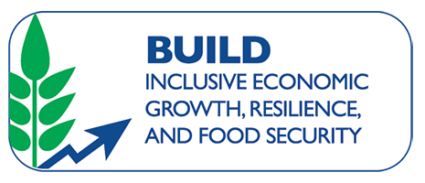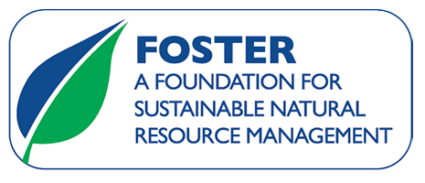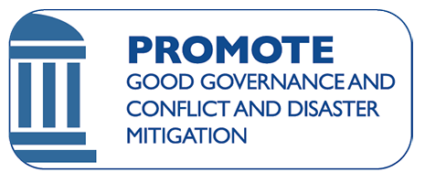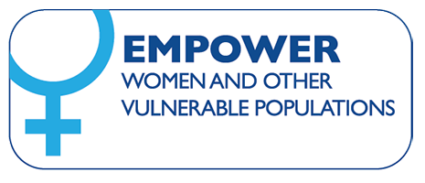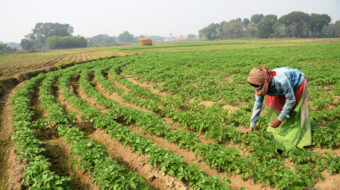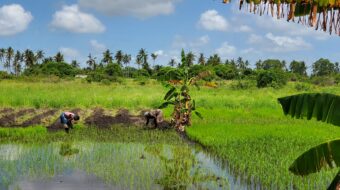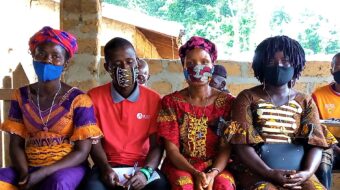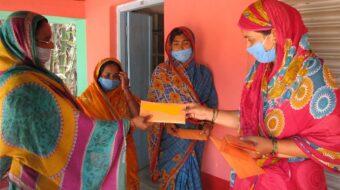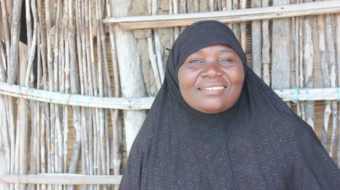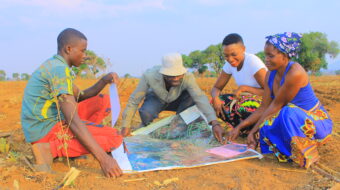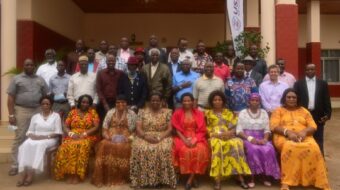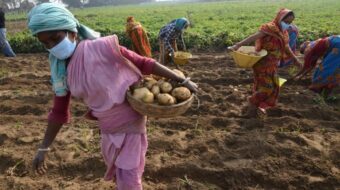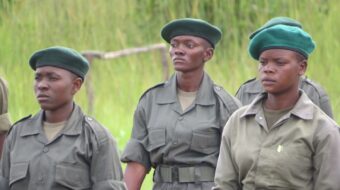Overview
The majority of land in developing countries is not documented, and hundreds of millions of households in rural and urban areas lack secure rights to the land and resources they live and rely on. This impacts their ability and incentive to make long-term investments and it often limits access to finance. As a result, these individuals are particularly vulnerable, especially in the event of conflict or natural disaster. Countries where property rights are perceived as insecure are less attractive for investors and more reliant on donor funding. USAID recognizes that strengthening rights to land and natural resources is central to achieving a broad range of development goals on the journey to self-reliance including: conflict prevention and mitigation; countering violent extremism; realizing inclusive economic growth; managing biodiversity and natural resources sustainably; enhancing agricultural productivity; generating own source revenue; and empowering women and vulnerable populations.
Goals
USAID’s Integrated Land and Resource Governance (ILRG) program – managed by the Land Resource Governance Division – is a flexible field support mechanism that works with USAID Missions to provide both short- and long-term assistance. The program gives USAID operating units and missions around the world an opportunity to request support for a wide array of services to improve land and resource governance, strengthen property rights, and build resilient livelihoods as the foundation for strong economic growth, stability, resilience, and self-reliance. ILRG’s services have been used to support a number of US government strategic foreign assistance initiatives and earmarks, including democracy and rule of law; gender equality and women’s empowerment; Feed the Future; conflict mitigation and management; economic growth; biodiversity and natural resource management; and global climate change. A common approach is for the mechanism to work with a Mission to undertake assessments, and subsequently develop activities to address land and resource governance constraints.
Approach
![]() ILRG initiates research and on-the-ground expert reviews on land ownership, use, and administration for all stakeholders, from smallholder farmers to national government in order to provide baselines and a knowledge base for programming. The equity and applicability of land law and policy, gender inclusion, access to extension information, and linkages to value chains are just a few examples of assessments ILRG may undertake to determine development needs.
ILRG initiates research and on-the-ground expert reviews on land ownership, use, and administration for all stakeholders, from smallholder farmers to national government in order to provide baselines and a knowledge base for programming. The equity and applicability of land law and policy, gender inclusion, access to extension information, and linkages to value chains are just a few examples of assessments ILRG may undertake to determine development needs.
![]() ILRG assists local communities to understand and utilize current land laws and policies that protect landholders, especially women, from encroachment, corruption and to resolve land disputes in the vicinity of investment sites. The project also supports access to courts, paralegals, and alternative dispute resolution, known as ADRs, structures to address infringements of lawful tenure rights.
ILRG assists local communities to understand and utilize current land laws and policies that protect landholders, especially women, from encroachment, corruption and to resolve land disputes in the vicinity of investment sites. The project also supports access to courts, paralegals, and alternative dispute resolution, known as ADRs, structures to address infringements of lawful tenure rights.
![]() ILRG activities help to deconstruct the complexity of roles, responsibilities, customs, beliefs, and the overarching legal rights surrounding women’s land and resource tenure to ensure those rights are protected and improved. Gender sensitivity and inclusion is an integral part of every ILRG intervention and is foundational to any long-term tenure solution.
ILRG activities help to deconstruct the complexity of roles, responsibilities, customs, beliefs, and the overarching legal rights surrounding women’s land and resource tenure to ensure those rights are protected and improved. Gender sensitivity and inclusion is an integral part of every ILRG intervention and is foundational to any long-term tenure solution.
![]() From local to national land issues, ILRG recognizes land tenure as a keystone for economic growth, stability, and resilience. ILRG engages and supports government and traditional leadership with creating cooperative, forward-thinking land administrative standards, which include advocacy for beneficiaries, including women and other vulnerable populations, and protection of natural resources.
From local to national land issues, ILRG recognizes land tenure as a keystone for economic growth, stability, and resilience. ILRG engages and supports government and traditional leadership with creating cooperative, forward-thinking land administrative standards, which include advocacy for beneficiaries, including women and other vulnerable populations, and protection of natural resources.
![]() Through its support of district land alliances (DLAs), ILRG helps build the capacity of local partners to serve as intermediaries between government and customary authorities and provide valuable land dispute and administration services through inexpensive, highly accessible smartphone applications. This work is closely tied to broader research and development objectives aimed at the linkage between strengthened land tenure for individuals and the wholistic improvement of agriculture, forest and wildlife resource management.
Through its support of district land alliances (DLAs), ILRG helps build the capacity of local partners to serve as intermediaries between government and customary authorities and provide valuable land dispute and administration services through inexpensive, highly accessible smartphone applications. This work is closely tied to broader research and development objectives aimed at the linkage between strengthened land tenure for individuals and the wholistic improvement of agriculture, forest and wildlife resource management.
![]() ILRG establishes formal coordination and cooperation between DLAs, local government, and customary authorities to improve efficiency and effectiveness of land administration and planning. Activities reach local partners, such as local universities and vocational and technical schools, to identify needs, interests, and gaps in the land and resource governance capacity of local institutions and connect those findings to civil society organizations, who are able to address them.
ILRG establishes formal coordination and cooperation between DLAs, local government, and customary authorities to improve efficiency and effectiveness of land administration and planning. Activities reach local partners, such as local universities and vocational and technical schools, to identify needs, interests, and gaps in the land and resource governance capacity of local institutions and connect those findings to civil society organizations, who are able to address them.
![]() This widely-adopted practice uses experiential learning and iterative and hands-on approaches so beneficiaries may delimit community property, resources, and individual landholdings while developing hard and soft skills such as leadership, community organizing, negotiation, gender consideration, communication, and change management. Maps created through this process are entered into databases and help local, customary, and national leaders meet their land use and resource management policies.
This widely-adopted practice uses experiential learning and iterative and hands-on approaches so beneficiaries may delimit community property, resources, and individual landholdings while developing hard and soft skills such as leadership, community organizing, negotiation, gender consideration, communication, and change management. Maps created through this process are entered into databases and help local, customary, and national leaders meet their land use and resource management policies.
![]() Generating economic models that bolster links along the value chain, ILRG assessments determine tenure dynamics that may impact the sustainability of an investment (e.g. land disputes and displacement or resettlement issues). Promoting interaction with the private sector strengthens the capacity of local and national government, as well as community stakeholders, to negotiate with commercial investors such that local people benefit from investments and are provided a link to communicate with investors about their concerns.
Generating economic models that bolster links along the value chain, ILRG assessments determine tenure dynamics that may impact the sustainability of an investment (e.g. land disputes and displacement or resettlement issues). Promoting interaction with the private sector strengthens the capacity of local and national government, as well as community stakeholders, to negotiate with commercial investors such that local people benefit from investments and are provided a link to communicate with investors about their concerns.
![]() Whether focused on lakes, streams, rivers, or coastline, ILRG activities share best practices to clarify water access rights, improve watershed management, and develop water use plans to ensure that people have access to and can protect water resources in their communities.
Whether focused on lakes, streams, rivers, or coastline, ILRG activities share best practices to clarify water access rights, improve watershed management, and develop water use plans to ensure that people have access to and can protect water resources in their communities.
![]() ILRG partners with civil society organizations and NGOs who have found successful ways to mitigate the threat to wildlife by actively involving communities in wildlife protection and management. These partnerships help prevent crop loss and food insecurity, and provide alternatives to poaching.
ILRG partners with civil society organizations and NGOs who have found successful ways to mitigate the threat to wildlife by actively involving communities in wildlife protection and management. These partnerships help prevent crop loss and food insecurity, and provide alternatives to poaching.
Activities
ILRG is particularly focused on activities that carry out policy and legislative engagement, pilot inclusive and gender-sensitive community and household rights documentation processes, build capacity of a range of stakeholders, and leverage private-sector partnerships. Through the successful implementation of these activities, ILRG will enable USAID to contribute to the following four objectives:
Coverage
ILRG’s engagements to date have been focused on four countries: Ghana, India, Mozambique, and Zambia. In Ghana, the project collaborates with the private sector (Hershey’s) to test a farm rehabilitation and land tenure strengthening model to increase cocoa productivity and reduce deforestation around smallholder cocoa farms. In India, the project supports a partnership between USAID and PepsiCo to economically empower women in PepsiCo’s potato supply chain. In Mozambique, the project supports communities to document their land rights, make decisions about land use, resolve land disputes, and be prepared to engage with private sector agribusiness. In Zambia, the project supports the land policy process, customary land administration and service delivery, capacity-building for civil society and government, and natural resource governance and tenure around protected areas to improve wildlife management. ILRG will also work in Liberia to evaluate the impact of community land protection activities on livelihoods.
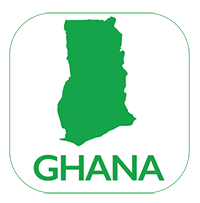 In Ghana, the project collaborates with the private sector (Hershey’s) to test a farm rehabilitation and land tenure strengthening model to increase cocoa productivity and reduce deforestation around smallholder cocoa farms.
In Ghana, the project collaborates with the private sector (Hershey’s) to test a farm rehabilitation and land tenure strengthening model to increase cocoa productivity and reduce deforestation around smallholder cocoa farms.
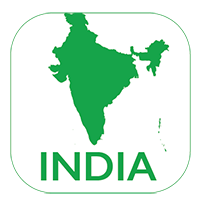 In India, the project supports a partnership between USAID and PepsiCo to economically empower women in PepsiCo’s potato supply chain.
In India, the project supports a partnership between USAID and PepsiCo to economically empower women in PepsiCo’s potato supply chain.
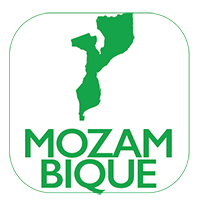 In Mozambique, the project supports communities to document their land rights, make decisions about land use, resolve land disputes, and be prepared to engage with private sector agribusiness.
In Mozambique, the project supports communities to document their land rights, make decisions about land use, resolve land disputes, and be prepared to engage with private sector agribusiness.
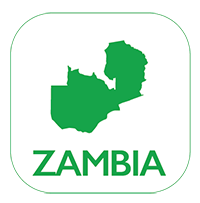 In Zambia, the project supports the land policy process, customary land administration and service delivery, capacity-building for civil society and government, and natural resource governance and tenure around protected areas to improve wildlife management.
In Zambia, the project supports the land policy process, customary land administration and service delivery, capacity-building for civil society and government, and natural resource governance and tenure around protected areas to improve wildlife management.
Contact
Sarah Lowery
slowery@usaid.gov
Land and Urban Office
Matt Sommerville
matt.sommerville@tetratech.com
Tetra Tech


